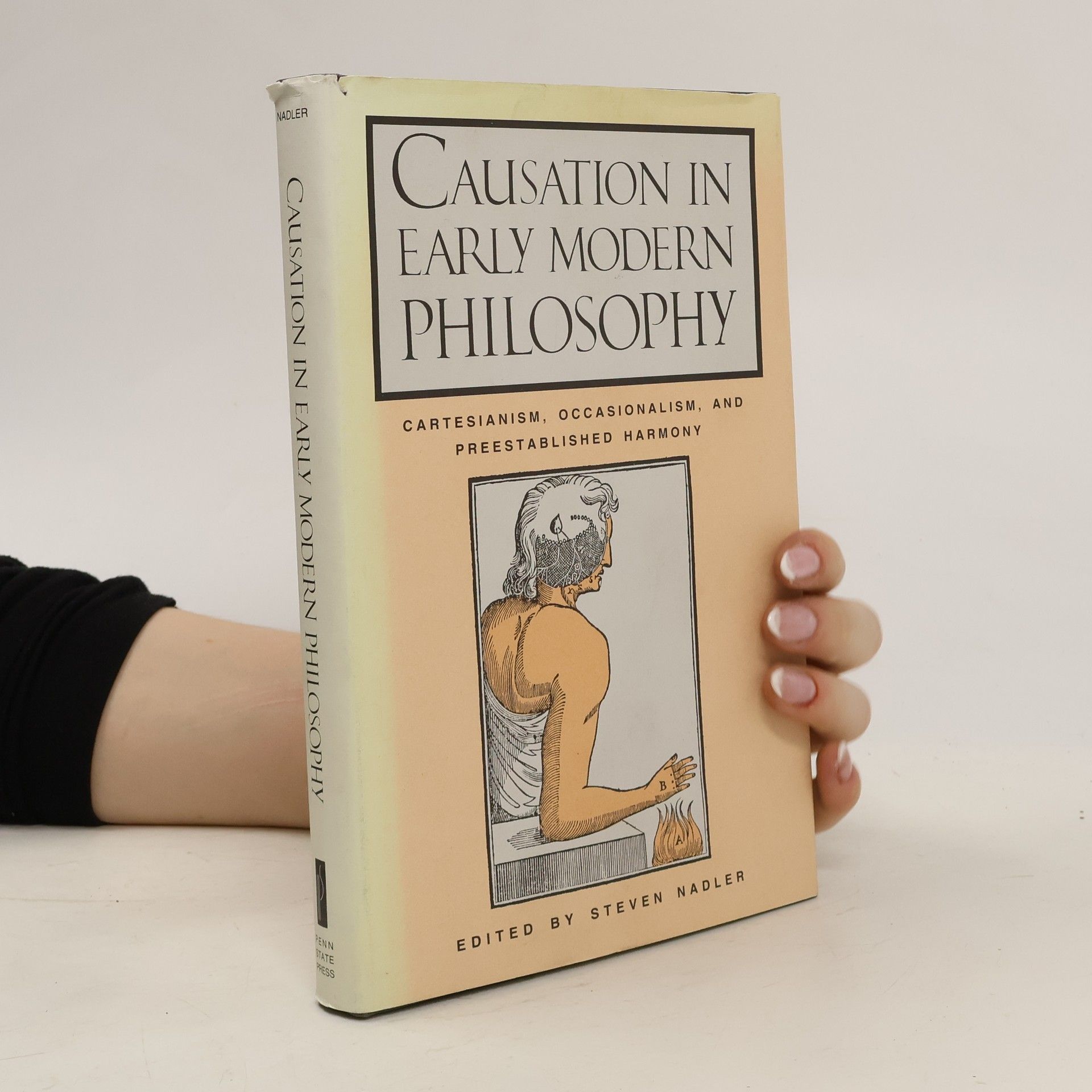The standard biography of the great seventeenth-century philosopher, now updated to draw on the latest archival discoveries, offers an engaging narrative of Spinoza's life and times and an accessible introduction to his radical ideas. Essential to scholars, it will also appeal to a broad readership interested in early modern Europe.
Steven Nadler Libri
Steven Nadler è un professore di filosofia le cui opere approfondiscono la storia del pensiero e l'impatto di pensatori cruciali. La sua scrittura esplora spesso l'intersezione tra storia intellettuale e ramificazioni culturali delle idee filosofiche. Nadler si concentra su come queste idee plasmano l'era secolare e sull'impatto scandaloso che possono avere sulla società. Le sue opere illuminano uno sguardo complesso ma accessibile sulla formazione del pensiero secolare.






Shows how Rene Descartes transformed philosophy.
Menasseh ben Israel
- 312pagine
- 11 ore di lettura
An illuminating biography of the great Amsterdam rabbi and celebrated popularizer of Judaism in the seventeenth century
A biography of the great portraitist Frans Hals that takes the reader into the turbulent world of the Dutch Golden Age. Frans Hals was one of the greatest portrait painters in history, and his style transformed ideas and expectations about what portraiture can do and what a painting should look like. Hals was a member of the great trifecta of Dutch Baroque painters alongside Rembrandt and Vermeer, and he was the portraitist of choice for entrepreneurs, merchants, professionals, theologians, intellectuals, militiamen, and even his fellow artists in the Dutch Golden Age. His works, with their visible brush strokes and bold execution, lacked the fine detail and smooth finish common among his peers, and some dismissed his works as sloppy and unfinished. But for others, they were fresh and exciting, filled with a sense of the sitter’s animated presence captured with energy and immediacy. Steven Nadler gives us the first full-length biography of Hals in many years and offers a view into seventeenth-century Haarlem and this culturally rich era of the Dutch Republic. He tells the story not only of Hals’s life, but also of the artistic, social, political, and religious worlds in which he lived and worked.
Think Least of Death
- 248pagine
- 9 ore di lettura
From Pulitzer Prize-finalist Steven Nadler comes an engaging exploration of what Spinoza can teach us about life's profound questions. In 1656, Baruch Spinoza was excommunicated from Amsterdam's Portuguese-Jewish community for his controversial beliefs, leading him to abandon his family's business to pursue philosophy. His radical views on God, the Bible, and free thought made him notorious across Europe. However, Spinoza's primary motivation was to address a pressing human concern: how to lead a good life and find happiness in a world without a providential God. Nadler connects Spinoza's ideas with his life and historical context, illustrating how the philosopher serves as a guide to living well. In his work, Spinoza describes the "free person," who, driven by reason, leads a joyful life focused on self-improvement and the well-being of others. Free individuals rise above negative passions like hate and envy, treating others with kindness and justice. They appreciate the pleasures of life, practicing moderation. As Spinoza notes, "The free person thinks least of all of death," emphasizing that true wisdom lies in a focus on life itself. This introduction to Spinoza's moral philosophy reveals how his insights remain relevant for living today.
"In this book the philosophers Steve Nadler and Lawrence Shapiro will explain why bad thinking happens to good people. Why is it, they ask, that so large a segment of public can go so wrong in both how they come to form the opinions they do and how they fail to appreciate the moral consequences of acting on them."--Publisher's description.
Causation in Early Modern Philosophy
- 219pagine
- 8 ore di lettura
Three general accounts of causation stand out in early modern Cartesian interactionism, occasionalism, and Leibniz's preestablished harmony. The contributors to this volume examine these theories in their philosophical and historical context. They address them both as a means for answering specific questions regarding causal relations and in their relation to one another, in particular, comparing occasionalism and the preestablished harmony as responses to Descartes's metaphysics and physics and the Cartesian account of causation. Philosophers discussed include Descartes, Gassendi, Malebranche, Arnauld, Leibniz, Bayle, La Forge, and other, less well-known figures.
